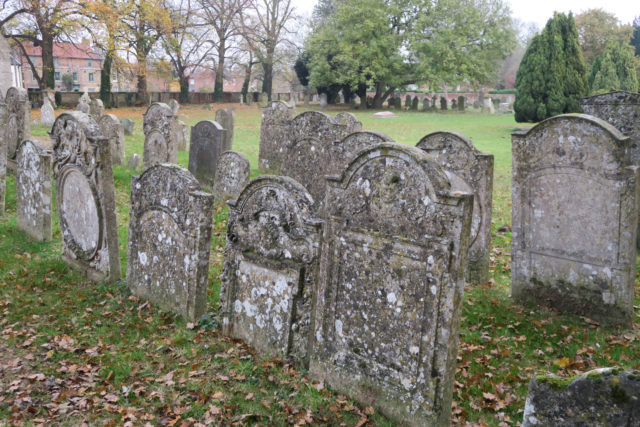
In George Saunders’ Lincoln in the Bardo, Saunders spins a fantastical tale of purgatory and mingling souls not yet settled in eternal homes. It’s all born out of the historical fact that Abraham Lincoln, in the midst of the Civil War, often walked into a nearby cemetery at night to visit his 11-year-old son’s grave to hold his body before it was set into the ground.
It’s a story that mines the nature of grief and how religious traditions from east to west — the Tibetan Bardo to the Catholic purgatory — consider the time between life as we know it and life beyond. But it also highlights a sort of earthly purgatory, born from grief — how closure does not come when loved ones die, and how there’s often a time of tumult between a loved ones’ last breath and when, if that time comes, we make peace with their passing.
Funerals and memorials are an important part of that grieving process for many, but in the time of coronavirus, when gatherings of more than 10 people are prohibited, this important step is now being delayed for some families.
“We’ve had a number of funeral services and memorials that have been postponed,” says Mike Murphy, the third-generation owner of M.P. Murphy and Associates Funeral Directors in Boulder. “We have a number of clients who have had to cancel previously scheduled services.”
Murphy says some clients are postponing some ceremonies well into the summer, choosing to delay the grieving process.
“The service involves a lot of grieving, of letting go, and that happens within the body of the service,” Murphy says.
While some delay services, other families who lose loved ones during this time are opting for small ceremonies that adhere to the 10-person limit. Still others are choosing to do small ceremonies now with a plan to do larger memorials later.
The Darrell Howe Mortuary in Lafayette has been in talks with a company to livestream services through Skype or Zoom.
“In our industry, we’re not very progressive as far as technology goes,” says director Kim Bridges. “We’re working toward that right now.”
The coronavirus restrictions add another layer of complexity to the funeral planning process, but Bridges says clients can expect the same level of care and attention the company has always offered. And, she adds, most people understand these are unique times.
“Because this has all come up so quickly, 99.9% totally understand,” Bridges says. “They’re all saying, ‘We get it. We want to be healthy, and we want your staff to be healthy.’ So they’ve been very accommodating. We are pushing hard for this livestream.”
But if services are being delayed, what happens to the bodies? For those wishing to inter their loved ones via a burial, bodies can be kept for specified amounts of time in refrigeration. For those looking into cremation, Murphy says, “We’ll do all the necessary legalities to proceed with that.”
“This is Boulder, Colorado, the Republic of Boulder,” he says. “The majority of our client families request cremation… Doesn’t make it easier for stress level.”
In kind, religious organizations have had to postpone some memorial services in light of the gathering restrictions.
One wonders: Do mortuaries and funeral service providers have to take extra precautions with coronavirus spreading?
“That’s a good question,” Murphy says. ”Do I ask that question now? I do. And I have to.”
Murphy and Bridges both say their normal precautionary measures when dealing with a human body apply in this time of coronavirus. With assistance from the Coroner’s Office and health care workers, they would be notified if a body might have been infected with COVID-19, even though additional protocols would be put in place before the body is discharged that would ensure the virus could not be transmitted.
Colorado is one of the few relatively unregulated states when it comes to mortuary and funeral services — you can bury someone in your yard without a license, for instance. That means, in complicated times like these, it may help to work with licensed professionals, Murphy says.
“I deal with professionals. You should expect the same in the funeral service profession for the same reasons my plumber has a license, my hairdresser has a license, my golf pro has a license,” Murphy says. “We practice universal precautions. We use common sense. We have the education, we have the talent and the experience to deal with this from the past.
“It is not an easy time to lose someone, but to have that loss compounded by inconvenience has to be horrific,” he says.
Death affects everyone. Grief affects everyone, and sometimes it lingers. Recently, I remembered that in a copy of Lincoln in the Bardo I picked up from a free library in Boulder, there were notes and marginalia and underlined parts throughout, but one note stood out to me. I couldn’t recall just what it was so I found the book and flipped through until I found it. The line: “As we approached, he lifted head from hands and heaved a great sigh. He might have been, in that moment, a sculpture on the theme of Loss.”
Written in blue ink in the margin: “For 3 years I have been a sculpture on the theme of Loss.”
Here’s hoping we can get back to life, death and everything in between, sometime soon.














